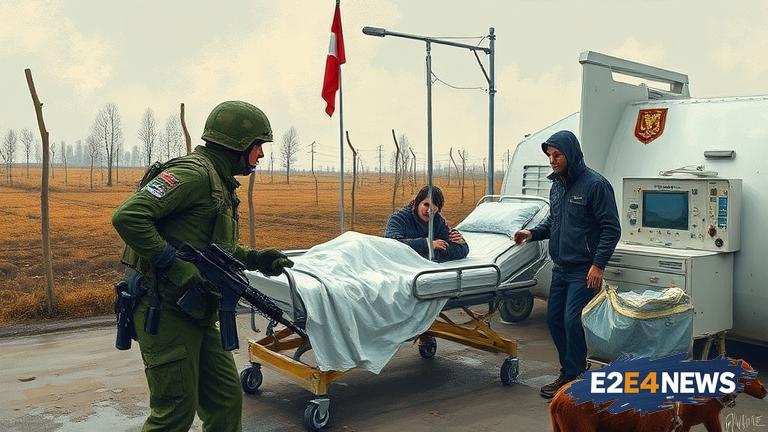The situation at the Belarus-Poland border has taken a turn for the worse, with a soldier being hospitalized due to injuries sustained during a confrontation with migrants. The border has been a point of contention for months, with thousands of migrants attempting to cross into the European Union. The migrants, many of whom are from the Middle East and Asia, are being aided by the Belarusian government, which has been accused of using them as pawns in a political game against the EU. The Polish government has responded by deploying troops to the border, where they have been clashing with the migrants. The hospitalized soldier is just one of many who have been injured in the clashes, which have also seen the use of tear gas and water cannons. The EU has accused Belarus of orchestrating the crisis, which has been described as a ‘hybrid attack’ on the bloc. The crisis has also sparked a diplomatic row between the EU and Belarus, with the EU imposing sanctions on the Belarusian government. The migrants, meanwhile, are facing dire conditions, with many being forced to sleep in the open air and without access to basic necessities like food and water. The situation has been condemned by human rights groups, who have accused the EU of not doing enough to help the migrants. The Polish government has also been criticized for its handling of the crisis, with many accusing it of being too heavy-handed. The EU has pledged to provide support to Poland, but the situation remains volatile. The crisis has also raised questions about the EU’s migration policies, with many calling for a more comprehensive approach to dealing with the issue. The situation at the border is just one part of a larger migration crisis that is affecting the EU, with many countries struggling to cope with the influx of migrants. The EU has been working to strengthen its external borders, but the situation at the Belarus-Poland border highlights the challenges that still need to be addressed. The crisis has also had a significant impact on the local community, with many residents expressing concerns about the situation. The Polish government has promised to do everything in its power to protect the border and ensure the safety of its citizens. The situation remains fluid, with the potential for further escalation. The EU and Belarus have been engaged in a war of words, with each side accusing the other of being responsible for the crisis. The migrants, meanwhile, continue to face an uncertain future, with many unsure of what will happen to them next. The crisis has also sparked a debate about the role of the EU in protecting its external borders, with some calling for a more robust approach. The situation at the Belarus-Poland border is just one example of the challenges that the EU faces in dealing with migration, and it remains to be seen how the crisis will be resolved.
